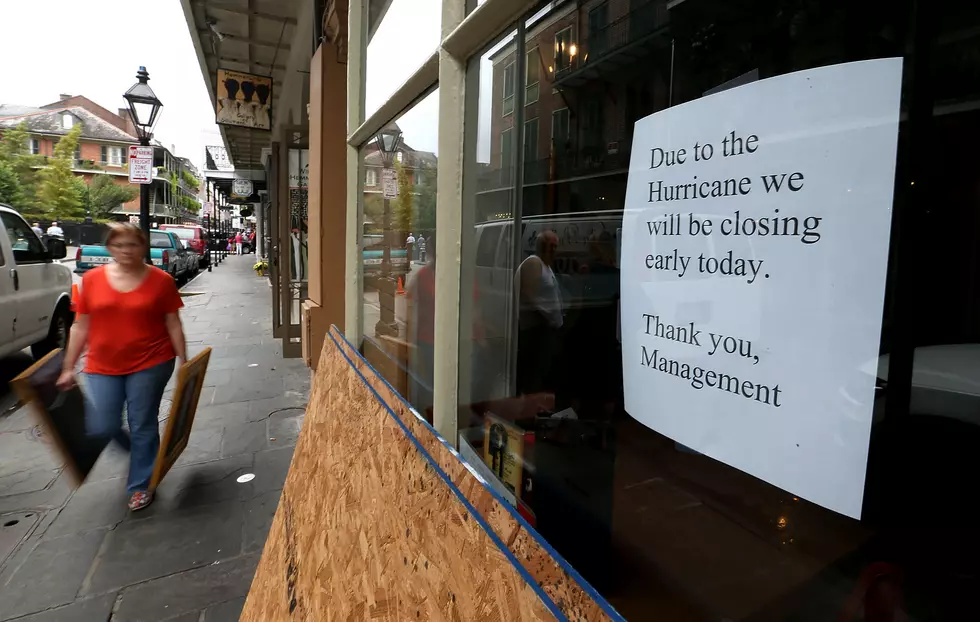
As Hurricane Isaac Approaches The Gulf Coast, Here Are Some Early Preparation Tips
As South Louisiana continues to monitor the path of Hurricane Isaac, it is NEVER too early to start preparing for the worst. As Hurricane Issac continues to move slowly westward, putting South Louisiana in it's potential path, we should start taking precautionary measures to protect ourselves, our family, and our property.
Many of the local emergency personal agencies, and government officials on all levels, are preparing their agencies for a possible strike in their respective jurisdictions. While we may not be certain where the storm will make landfall as of yet, we are preparing as if we are in the "line of fire."
Meteorologists say that Hurricane Isaac will make landfall early Wednesday morning, thus its NOT TOO EARLY to start preparing for the storm. The federal government has put a hurricane preparation checklist together to help you secure yourself, your family and your property.
Here are some reminders the government has offered up as you begin to prepare for Hurricane Isaac.
- To begin preparing, you should build an emergency kit and make a family communications plan.
- Know your surroundings.
- Learn the elevation level of your property and whether the land is flood-prone. This will help you know how your property will be affected when storm surge or tidal flooding are forecasted.
- Identify levees and dams in your area and determine whether they pose a hazard to you.
- Learn community hurricane evacuation routes and how to find higher ground. Determine where you would go and how you would get there if you needed to evacuate.
- Make plans to secure your property:
- Cover all of your home’s windows. Permanent storm shutters offer the best protection for windows. A second option is to board up windows with 5/8” marine plywood, cut to fit and ready to install. Tape does not prevent windows from breaking.
- Install straps or additional clips to securely fasten your roof to the frame structure. This will reduce roof damage.
- Be sure trees and shrubs around your home are well trimmed so they are more wind resistant.
- Clear loose and clogged rain gutters and downspouts.
- Reinforce your garage doors; if wind enters a garage it can cause dangerous and expensive structural damage.
- Plan to bring in all outdoor furniture, decorations, garbage cans and anything else that is not tied down.
- Determine how and where to secure your boat.
- Install a generator for emergencies.
- If in a high-rise building, be prepared to take shelter on or below the 10th floor.
- Consider building a safe room.
- Have plenty of supplies in your home before the storm arrives (batteries, water, canned goods, flashlights)
We would also like to note that many of you may have generators at your home to supply power to your home in the event of your electricity going out. We remind you that you should NEVER put the generator in your home, and if you are not sure how to use a generator you should contact a professional who does. Also, ALWAYS disconnect your generator from your home when linesman are working to restore your power.
More From Hot 107.9




![Aerial Shots Show Enormous Response to Hurricane Ian in Florida [PHOTOS]](http://townsquare.media/site/34/files/2022/09/attachment-GettyImages-1243570665.jpg?w=980&q=75)



